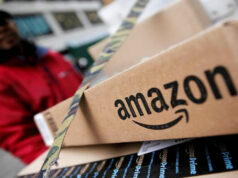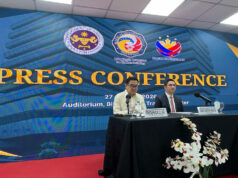Beyond Bitcoin: Global companies showcase business potential of blockchain technology
By Santiago J. Arnaiz
Multimedia Producer
SINGAPORE — Of all the buzzwords saturating the tech industry today, perhaps no other budding system is as veiled as blockchain. Essentially a distributed digital ledger, blockchain has become synonymous with its most popular application, cryptocurrencies like Bitcoin, and so has taken on much of its notoriety.
At its core, a blockchain is a peer-evaluated record that uses both its structure and its network to make its data essentially impervious to change. While that reliability has found its most immediate application in cryptocurrencies, there is quite possibly no limit to the ways business models might utilize the technology.
“Organizations of all sizes are already applying blockchains in innovative ways,” said Patricia Yim, general manager of IBM ASEAN. “Blockchain has the potential to drive growth in new business models due to the fundamental change it can introduce in the way organizations collaborate.”
Ms. Yim cited IBM’s partnership with Walmart, where they implemented blockchain technology to develop a real-time traceability system to address food safety issues rampant among supermarkets worldwide.
Using this distributed ledger technology, Walmart was able to confidently validate where food was grown, handled, stored, and inspected, as well as track its journey from farm-to-fork, cutting the time it takes to trace this information, once across various fragmented data sets, from weeks down to mere seconds.
Leanne Kemp, founder and CEO of global start-up Everledger, uses a similar system to track diamonds and other high-value goods in the global market to ensure their authenticity for buyers and insurers.
Using blockchain’s immutable record-keeping capabilities, Ms. Kemp can make permanent records of a diamond’s defining characteristics, history, and ownership — creating a digital thumbprint that stakeholders can use to form provenance and verify the item’s authenticity.
“We take all that information and we write it into the blockchain,” Ms. Kemp said. “So we now know where diamonds are being sold and resold on marketplaces such as Amazon and eBay, and we work with insurance companies on fraudulent claims, and with Interpol and Europol where diamonds cross borders and enter into the black market.”
By consolidating data into one globalized, instantaneously accessible set, without the need for a third-party provider, Everledger claims this digital ledger drives both cost-efficiency and accountability along the supply chain.
Blockchain has even found its way into the Philippines through The Plastic Bank, a global organization that operates in the world’s most impoverished regions, exchanging plastic waste for digital currency.
Using blockchain, The Plastic Bank was able to build a reward system they call Social Plastic, that incentivizes communities to gather plastic waste by awarding credits that can be used to purchase things they need most.
The Plastic Bank currently works with 1,500 families in Manila’s Baseco compound, partnering with NGOs and firms like Procter and Gamble and Century Pacific Food to provide them with rewards for cleaning up their communities, with groups like Shell volunteering their gas stations as collection sites.
With so many stakeholders working with something as difficult to track as plastic, The Plastic Bank needed a reliable tracking system for the thousands of exchanges they make on a regular basis. Founder and CEO David Katz uses a binary system metaphor to describe why the immutability of blockchain is at the core of his business model.
“If we look at falsehoods, at lies, and data we can’t rely on, out of a value of zero and one, we would have to give that a zero,” Mr. Katz said. “When we look at facts on things we need to rely on, on the truth, we can give that a value of one.”
“So in business, if I apply a hundred units of energy or value to falsehood, or zero, I would still get zero,” he said. “If I apply a hundred units of value to one, I get a hundred. So, for us, we need to apply maximum value to fact.”
Despite the new capabilities that blockchain technology opens up for innovators, the technology is still in its infancy stage, and so has yet to enter into mainstream practice. Just as many firms unfamiliar with what exactly blockchain entails shy away from the technology, so do regulatory bodies that face the challenge of managing a field that even those innovating in it barely understand.
This is true not only for those dabbling in blockchain, but even for more mature technologies, like those implemented in ride-sharing platforms like Uber and Grab, who face massive scrutiny by regulatory boards slow to respond to innovation.
“I think it’s the whole crypto idea,” Mr. Katz said, attributing the skepticism over blockchain-enabled systems to the smokescreen of cryptocurrencies.
“It’s unfortunate that it arrived in the order that it arrived,” he said. “It should’ve been blockchain, blockchain, blockchain — oh, crypto, hold on a second. But it went the other way around, and that’s diminished it. It’s sad, but it’ll come around.”
RECOMMENDED: IBM Blockchain General Manager Marie Wieck on how businesses can use blockchain



